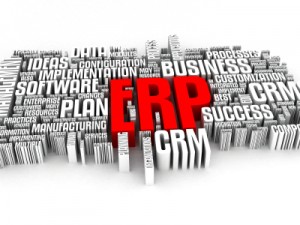 ERP systems are constantly changing and evolving therefore it is now time to predict what 2014 has in store for ERP. 2014 is all about getting the most from cloud, big data and mobile.
ERP systems are constantly changing and evolving therefore it is now time to predict what 2014 has in store for ERP. 2014 is all about getting the most from cloud, big data and mobile.
1. More Educated Buyers of ERP systems
The internet is a massive database of information for buyers. Now everyone researches products and services before they buy. With review tools such as Trust Pilot, CustomerSure and various blogs, buyers have more knowledge about solutions – sometimes more information than the sales team – when they are about to purchase. In addition, there are plenty of free or inexpensive resources available to educate buyers on how to make their ERP implementation successful, such as reports and webinars.
2. The Continued Importance of Mobility and Business Intelligence
As companies look to get more out of their software, they start to invest more in ERP systems that provide mobile functionality and business intelligence (BI) software to get a higher return on investment. In regards to business intelligence, more companies will recognise that their current ERP systems will not necessarily be fit for purpose for BI. They will need software that will help them make better use or sense of their business information to support decision-making among employees and key decision-makers. In addition, the c-suite will be under increasing pressure in a shaky economy, which will put more pressure on their employees to provide decision-making tools and dashboards designed to support their need for information, no matter where they are.
For customers, mobile is no longer a “nice to have” it is a “must have” and advances in mobility platforms and integration making mobile data in real-time possible.
3. ERP in the Cloud
Many growing businesses will continue to outgrow their current system and will require an ERP system with more functionality and efficiency to handle day-to-day business operations. More businesses are moving to the cloud for a number of reasons including:
- Lower cost of ownership
- More eco-friendly
- Reduced dependence on internal IT personnel
In a recent survey, it advocates that 2014 will be the year of the ERP cloud. According to the survey of respondents, 14% have fully migrated an ERP system to the cloud, with the majority (31%) saying they will migrate in the next 12 months. A further 27% said they would be in the cloud by the end of 2015.
4. Improving User Experience
In the recent economic recession businesses have changed their priorities. It’s no longer about the biggest, fastest and most complex solution – it’s about simplicity, convenience and collaboration. Not just in the ERP systems, but in every way they do business – how to find customers, how to choose products, how to deploy and how to pay. Businesses don’t want complex systems With difficult upgrades that disrupt operations. In 2014, users want a common experience and consistency.
To find out more about ERP, download the whitepaper and read the detailed analysis of the cost of cloud computing versus on-premise business applications.
Where do you think ERP is heading? Share your own predictions on ERP trends in the comments!